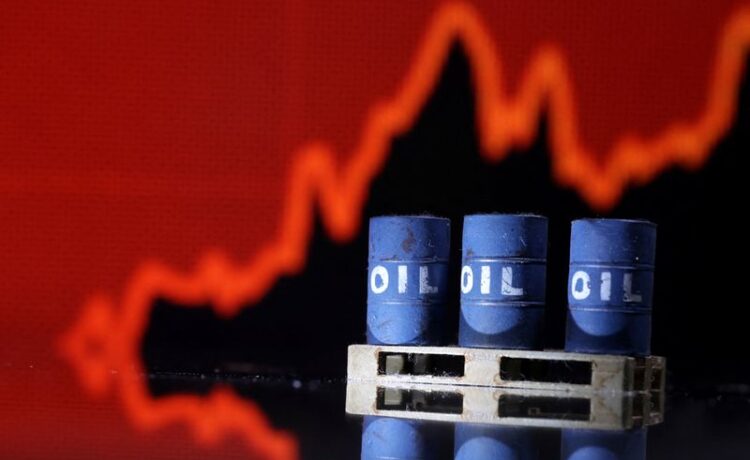(Reuters) — Oil prices fell on Monday as market participants dialled back risk premiums following Iran’s weekend attack on Israel that the Israeli government said caused limited damage.
Brent futures for June delivery fell 91 cents, or about 1%, to $89.54 a barrel, while West Texas Intermediate (WTI) futures for May delivery were down $1.02, or 1%, at $84.62 a barrel.
Iran’s attack involved more than 300 missiles and drones, and was the first on Israel from another country in more than three decades, raising concerns about a broader regional conflict affecting oil traffic through the Middle East.
But the attack, which Iran called retaliation for an air strike on its Damascus consulate, caused only modest damage, with missiles shot down by Israel’s Iron Dome defence system. Israel, which is at war with Iran-backed Hamas militants in Gaza, has neither confirmed nor denied it struck the consulate.
“An attack was largely priced in the days leading up to it. Also the limited damage and the fact that there was no loss of life means that maybe Israel’s response will be more measured,” said Warren Patterson, head of commodities strategy at ING.
“But clearly, there is still plenty of uncertainty and it all depends on how Israel now responds.”


As Iran currently produces over 3 million barrels per day (bpd) of crude oil as a major producer within the Organization of the Petroleum Exporting Countries (OPEC), supply risks include more strictly enforced oil sanctions and that an Israeli response could involve targeting Iran’s energy infrastructure, ING also said in a separate client note on Monday.
If there was significant supply loss, however, the U.S. could release further crude oil from its strategic petroleum reserves, while OPEC has more than 5 million bpd of spare production capacity, it said.
“If prices were to rally significantly on the back of supply losses, one would imagine that the group would look to bring some of this spare capacity back onto the market. OPEC will not want to see prices going too high given the risk of demand destruction,” ING said in the note.
Oil benchmarks had risen on Friday in anticipation of Iran’s retaliatory attack, touching their highest levels since October.
Analysts were widely expecting at least a short-lived rally in prices this morning, but said that more significant and longer-lasting price effects from the escalation would require a material disruption to supply, such as constraints on shipping in the Strait of Hormuz near Iran.
So far, the Israel-Hamas conflict has had little tangible impact on oil supply.
The “strike on Iran’s embassy in Syria and Iran’s retaliation have raised tension in the Middle East. However, we don’t expect an immediate reaction in crude oil prices given ample spare capacity and an already elevated geopolitical risk premium,” said ANZ Research analysts in a note.
“Israel’s response will determine whether the escalation ends or continues. The conflict could still be contained to Israel, Iran and its proxies, with possible involvement of the U.S. Only in an extreme case do we see it realistically impacting oil markets.”
Analysts at Citi Research said prolonged tensions through the second quarter this year have largely priced oil at $85-$90 per barrel. As the market has been broadly balanced in supply and demand throughout the first quarter, any de-escalation could see prices falling back quite sharply to the high $70s or low $80s per barrel range.
“What is not priced into the current market, in our view, is a potential continuation of a direct conflict between Iran and Israel, which we estimate could see oil prices trade up to over $100 per barrel depending on the nature of the events,” the Citi analysts said in a note.
(Reporting by Colleen Howe in Beijing, Emily Chow and Florence Tan in Singapore; Editing by Christopher Cushing, Shri Navaratnam and Tom Hogue)

















